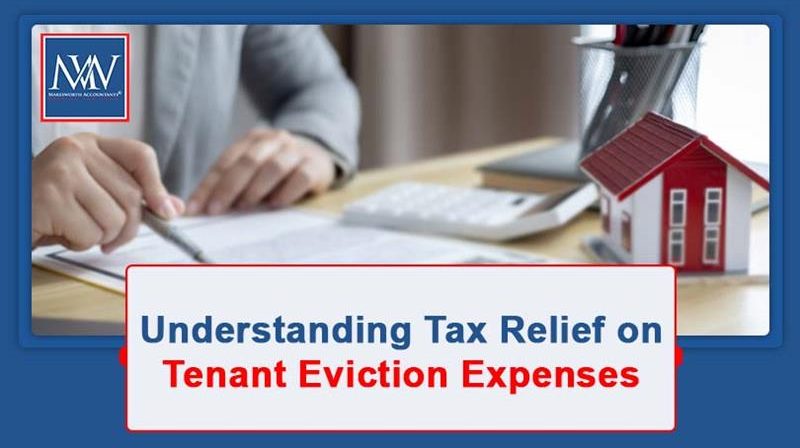
Understanding Tax Relief on Tenant Eviction Expenses
When Tenants Refuse to Leave
For many landlords, few situations are more stressful than dealing with tenants who refuse to vacate a property — even after being served a valid Section 21 or Section 8 notice. Unfortunately, this leaves landlords with no choice but to go through the eviction process, which involves both time and upfront costs.
Even if some of these expenses are later recovered from the tenants, landlords must initially bear the financial burden themselves. It’s crucial to follow the correct legal procedures throughout this process to avoid any claims of harassment or unlawful eviction.
Eviction Costs and Legal Process
To regain possession of a property, landlords must apply to the court for a possession order.
-
Accelerated Possession Order (£404):
If the landlord is not seeking unpaid rent, they can opt for the accelerated possession process. This method doesn’t usually require a court hearing and tends to be quicker. However, legal or professional fees may still apply. -
Standard Possession Order (£404):
If unpaid rent is being claimed, the standard possession route should be followed. This can be done online and incurs the same £404 fee, plus any legal expenses.
Once the claim is made, tenants are given two weeks to respond. If they fail to vacate by the date stated in the possession order, the landlord must then apply for a warrant of possession, costing £148, plus legal fees.
After the warrant is granted, the landlord receives notice EX96, which confirms the eviction date. This form must be returned to proceed with the eviction.
Landlords can also transfer the warrant to the High Court to obtain a writ of possession, allowing High Court enforcement officers to carry out the eviction — typically faster but at an additional cost of £123 (plus legal fees).
Keeping detailed records of all incurred costs is essential for accounting and tax purposes.
Claiming Tax Relief on Eviction Costs
Tax treatment depends on whether the incurred expenses are considered capital or revenue in nature — a distinction that often confuses landlords, especially since legal fees can fall into either category depending on the reason for eviction.
1. Revenue Expenditure (Tax-Deductible)
If the tenant is being evicted due to a breach of tenancy — such as non-payment of rent or property damage — and the landlord plans to re-let the property, the eviction costs are treated as revenue expenses.
These costs can be deducted when calculating the rental profit, provided they haven’t already been recovered from the tenant.
2. Capital Expenditure (Deductible on Sale)
If the landlord serves a Section 21 notice to regain possession in order to sell the property, the eviction costs are deemed capital expenses.
These can be offset against the property’s sale proceeds when determining the capital gain or loss on disposal.
Recovering Costs and Insurance Considerations
If the landlord’s insurance policy covers eviction-related costs, any insurance payout must be factored into the tax calculation. Similarly, if unpaid rent is later recovered — either directly from tenants or via insurance — that amount must also be included in the taxable rental income.
Final Thoughts
Evicting tenants is never a pleasant experience, but understanding how to properly claim tax relief on related costs can help reduce the financial strain. Always keep thorough records of all legal, court, and professional expenses — and seek advice from a qualified tax professional to ensure correct treatment under HMRC rules.
For more information, Book a Free Consultation
Need Accountancy Support?
For information on bespoke training, or if you have any other questions for Makesworth Accountant, please fill in your details below
















 151
151